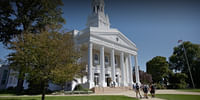Political scientists focus their attention on many specific phenomena in their efforts to understand politics: political parties and voting behavior, interest groups, bureaucracies and administrative procedures, executive and legislative bodies, courts and the administration of justice, political socialization, political philosophy, national security and defense policy, and international law and organization. Political scientists also compare nations and states for the purpose of gaining knowledge of the ways in which governments make policies under different cultural and social conditions. The discipline also develops and tests theories of government.
Whether or not one seeks to prepare for a specific career through the study of political science, basic knowledge of governmental processes is essential to good citizenship and a well-rounded education. No person can claim to be truly educated unless he understands the political system within which he or she lives and how that system is similar or different from others around the world. In this regard, it is interesting to note that the Greek word "idiot" in its original usage referred to one who took no interest in political affairs.
In selecting majors, college students usually take into consideration three main factors: individual interests, talents and career goals. In terms of the latter, Political Science majors choose careers in all of the following fields:
- Law
- Federal Government
- State and Local Government
- Public and Private Interest Groups
- Journalism
- Business
- Teaching
- Management
- International Affairs









.png?tr=h-40,w-40,c-force)

